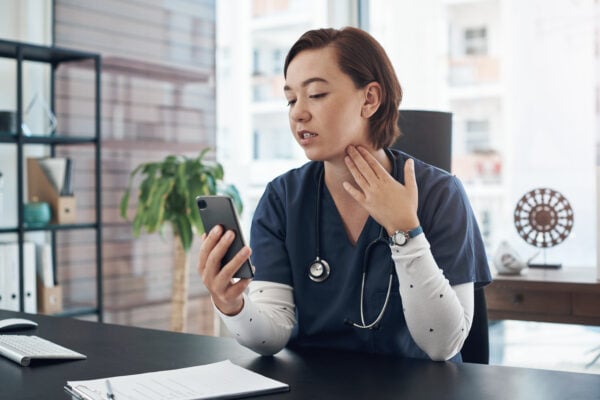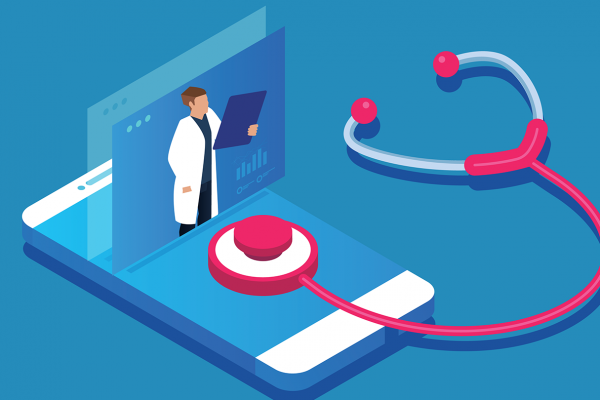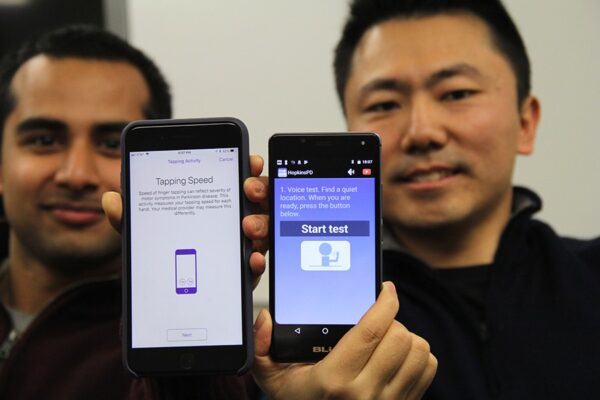In: Mobile Health

Symposium spotlights AI’s potential to revolutionize health care
- September 29, 2025
- Center NewsMachine Learning and Artificial IntelligenceMobile HealthRobotics, Augmented Reality, and Devices
Robot-assisted surgery, an app for diagnosing strep throat, and a new tool to detect glaucoma are all on the health care horizon thanks to artificial intelligence innovators at the Johns Hopkins University.

You gotta have faith . . . in the algorithm
Johns Hopkins researchers determine that explanations and examples improve clinicians’ trust in an AI system that assists with remote strep diagnosis.

In a world of social distancing, telemedicine is king
- August 5, 2020
- COVID-19Mobile Health
Phillip Phan, a professor of strategy and entrepreneurship at the Carey Business School and member of the Malone Center, discusses the promising developments in telemedicine that may have been sped up by the onset of the coronavirus pandemic

Johns Hopkins awarded $2.5 million to investigate digital tools for heart health
- May 28, 2020
- Center NewsMobile Health
The American Heart Association grant will fund the creation of the Center for Mobile Technologies to Achieve Equity in Cardiovascular Health, led by Seth Martin, an associate professor of cardiology and member of the Malone Center.

Announcing 2019 Malone Seed Grant Awards
One project will explore how artificial intelligence can predict glaucoma risk; the other aims to measure how elderly patients benefit from physical activity prior to surgery.

App can help doctors track severity of Parkinson’s symptoms
- April 10, 2018
- Mobile HealthUncategorized
Parkinson’s disease, a progressive brain disorder, is often tough to treat effectively because its symptoms—such as tremors and walking difficulties—can vary...